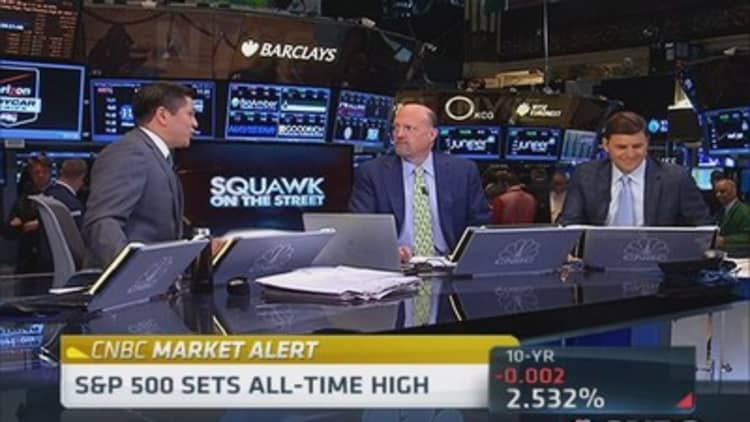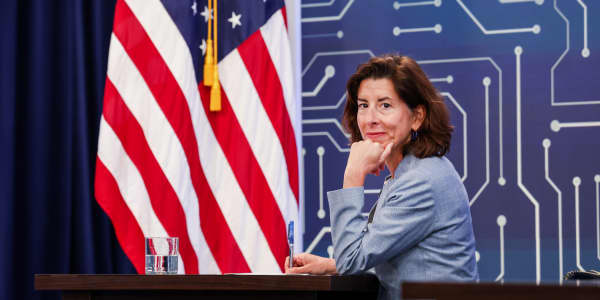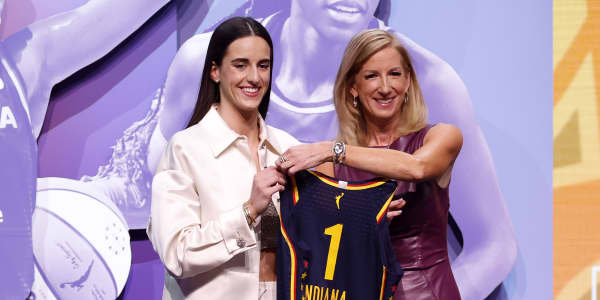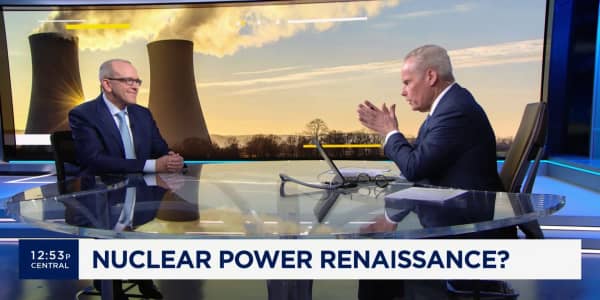Apple products have disrupted the phone, computer and music markets, but support for the tech giant to move into financial services is flagging.
An Accenture survey out Tuesday showed just 34 percent of millennials—and 20 percent of respondents aged 35 to 54—would bank with Cupertino, California-based Apple if it offered those services. More millennials would bank with Google and Amazon, according to the survey, part of a broader report titled "Everyday Bank: A New Vision for the Digital Age."
The results come at a time when analysts—like Morgan Stanley's Katy Huberty—have suggested Apple leverage its iTunes platform and mobile phones for payments. The platform has seen consistent sales growth—on track to process some $20 billion in transactions this fiscal year—and already has access to credit card information for millions of customers.
Indeed, Apple CEO Tim Cook said on the company's January earnings call that "the mobile payments area in general is one we've been intrigued with."
Meanwhile, PayPal already has established itself as the dominant force in payments, with more than $180 billion in net payment volume in 2013. With a tried-and-true service, more customers would be willing to trust it with traditional banking services: It got the highest marks of all "alternative" banks on Accenture's survey, including 46 percent of millennial respondents.

Read MoreMeet George Jetson: Apple preps iPhone 'big play'
Jim Marous, publisher of the blog The Financial Brand, says simplicity, design and efficiency are the top priorities for millennials, unlike previous generations.
"While not providing extensive credit or investment services, tech companies are potentially better positioned than traditional banks to provide innovative, mobile-first financial services," Marous told CNBC.
Accenture's survey polled 3,846 bank customers in North America between March 10-18, and its margin of error is 1.5 percent.
While all tech giants have eyed the banking space, each has approached it differently.
Amazon Capital Services has been quietly making loans to small businesses that sell products on its site. Facebook has registered for an e-money license in Ireland. And Alibaba's financial services arm—which started as a lender before expanding into money market funds and other products—now has holdings of $87 billion and 80 million depositors, according to the Accenture report.
"Alibaba is not yet a bank," the report said, "but for customers it is certainly getting hard to tell the difference."
Read MoreEBay: No cash or free credit checks after hack
By that measure, neither Google nor PayPal—both of which process transactions for any vendor and offer card services, too—is in fact a bank, since they do not store money. Google Wallet simply has access to a registered bank account; a PayPal user's "stored balance" gets pooled at FDIC-insured banks that PayPal works with.
"Tech companies are very reluctant to enter the game because of the regulatory regime," said Dave Hoffman, partner in the financial services practice at PriceWaterhouseCoopers. "In the end, deposit insurance is an important element of the trust factor that banks do have."
Representatives for Amazon, Apple, Google and PayPal could not be reached for comment.
Getting that registration—and/or a charter as an industrial loan corporation—would be the typical route to becoming a bank, but not without precedent. Wal-Mart, for example, abruptly revoked its application for a bank charter in 2006 after a bitter battle in Washington with unions and regulators.
Read MoreCredit card makers, stores clash over microchips
Now, Wal-Mart has found ways to offer financial services, such as wire transfers and prepaid debit cards, while skirting traditional regulations.
Tech will continue to do the same, as former PayPal chief Peter Thiel told CNET in 2002: "As long as we continue doing what we are doing today, we won't be subject to federal banking laws."
—By CNBC's Kayla Tausche.





